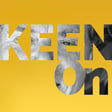
Episode 2547: Paul Elie on Art, Faith and Sex in the 1980s
How religious was the 80s creative scene? Very. At least according to Paul Elie, whose intriguing new cultural history, The Last Supper, charts the art, faith, sex and controversy of the 1980s. Elie argues that this was the age of what calls “crytpo-religious” art - a intensely creative decade in which religious imagery and motifs were often detached from conventional belief. Beginning in 1979 with with Dylan’s “Christian” album Slow Train Coming and ending with Sinéad O'Connor's notorious SNL tearing up of a photo of the Pope, Elie presents the 80s as a "post-secular" era where religion remained culturally significant despite declining traditional belief. And he argues that artists as diverse as Leonard Cohen, Salman Rushdie, Andy Warhol, U2, Robert Mapplethorpe and Wim Wenders all translated their religious upbringings into books, movies, songs and artwork that shaped a momentously creative decade.
Five Key Takeaways
* "Crypto-religious" art uses religious imagery and themes from a perspective other than conventional belief, forcing audiences to question what the artist actually believes and examine their own faith.
* The "post-secular" era began around 1979 when it became clear that progressive secularization wasn't happening—instead, religion remained a persistent cultural force requiring honest engagement rather than wishful dismissal.
* America's religious transformation in the 1980s saw the country shift from predominantly Christian to multi-religious due to immigration, while also developing a strong secular contingent, creating unprecedented religious diversity.
* Artists as "controverts" were divided against themselves, torn between progressive cultural experiences and traditional religious backgrounds, using art to work through these internal contradictions rather than simply choosing sides.
* The Rushdie affair marked a turning point when violence entered religious-cultural debates, hardening previously permeable boundaries between belief and unbelief, leading to more polarized positions like the "New Atheism" movement.
Paul Elie is the author of The Life You Save May Be Your Own (2003) and Reinventing Bach (2012), both National Book Critics Circle Award finalists. He is a senior fellow in Georgetown University's Berkley Center for Religion, Peace, and World Affairs, and a regular contributor to The New Yorker. He lives in Brooklyn.
Named as one of the "100 most connected men" by GQ magazine, Andrew Keen is amongst the world's best known broadcasters and commentators. In addition to presenting the daily KEEN ON show, he is the host of the long-running How To Fix Democracy interview series. He is also the author of four prescient books about digital technology: CULT OF THE AMATEUR, DIGITAL VERTIGO, THE INTERNET IS NOT THE ANSWER and HOW TO FIX THE FUTURE. Andrew lives in San Francisco, is married to Cassandra Knight, Google's VP of Litigation & Discovery, and has two grown children.
Keen On America is a reader-supported publication. To receive new posts and support my work, consider becoming a free or paid subscriber.
This is a public episode. If you'd like to discuss this with other subscribers or get access to bonus episodes, visit keenon.substack.com/subscribe

